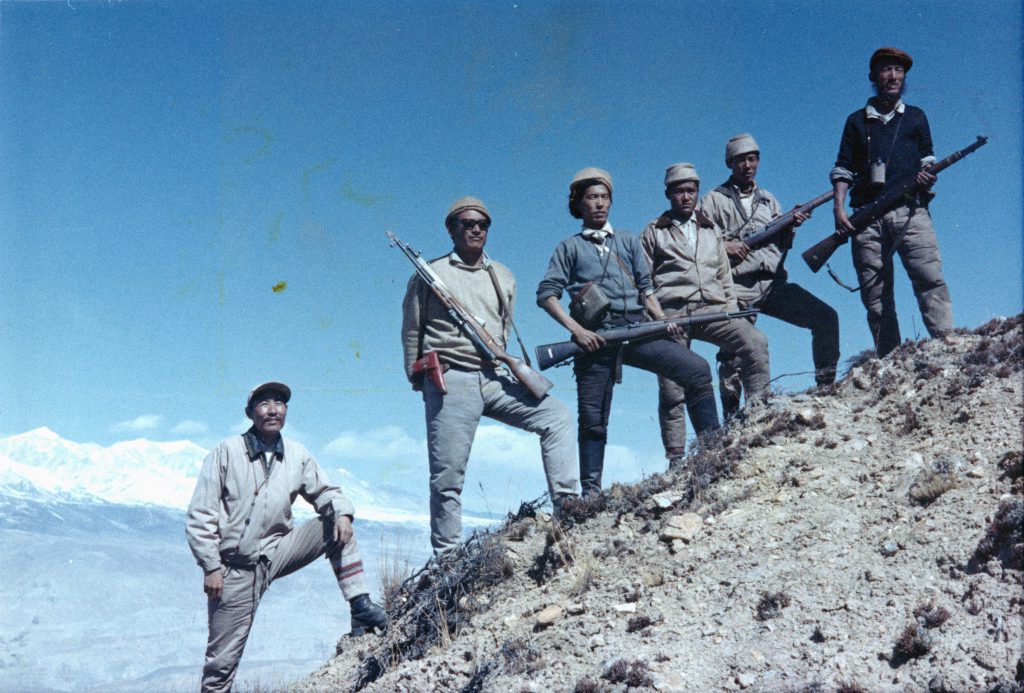
From Tibet to Indonesia: Rupture and Continuum

From Tibet to Indonesia: Rupture and Continuum
Kartika Pratiwi and Ritu Sarin and Tenzing Sonam, with Inza Lim
November 28, 2020
7–8:30am CET / 3–4:30pm KST
Watch it again here.
This conversation brings forth artistic and cinematic strategies dedicated to sites of collective memory, and the persistence of trauma under authoritarian rule and occupation. Researcher Kartika Pratiwi discusses the potential of digital storytelling and alternative educational platforms to create space for witness accounts and survivors’ stories from the mass killings of 1965–66 in Indonesia, which started as an anti-communist purge following a coup d’état attempt in Indonesia. Known for their films emerging from the Tibetan struggle and Himalayan geography, filmmakers Ritu Sarin and Tenzing Sonam introduce their long-term project featuring the personal archive of Lhamo Tsering—Sonam’s father who was one of the leaders of the CIA-backed guerrilla resistance against Communist China’s military operation in occupied Tibet. Theater director Inza Lim acts as respondent and shares reflections from her theatre making and activism around the Gwangju democratization process.
Ritu Sarin and Tenzing Sonam have been making films for over thirty years. A recurring subject in their work is Tibet, forming an intimate engagement at different levels: personally, politically and artistically. Through their films and artistic work, Sarin and Sonam have attempted to document, question and reflect on the questions of exile, identity, culture and nationalism that confront the Tibetan people. They have made several award-winning films and their video installations have been shown internationally. They also made the Tibetan feature films such as Dreaming Lhasa (2005) and The Sweet Requiem (2018). Sarin and Sonam are also the directors of the Dharamshala International Film Festival, one of India’s leading independent film festivals, which they founded in 2012.
Kartika Pratiwi is an independent researcher with an interest in narrative discourse on the 1965 genocide in Indonesia, Chinese-Indonesian issues, and digital storytelling. She is the founder of kotakhitam Forum, an independent organization dedicated to research and documentary productions about social and political changes with the main idea to record witness and survivor accounts of Indonesia’s 1965 history. She recently finished her fellowship at Alliance of Historical Dialogue and Accountability at Columbia University where she started her project entitled Rewriting 1965 in the Digital Age, which focuses on an interactive digital platform about the documents of mass killings in Indonesia in 1965 through stories, witness accounts, archival documents, and digital cartography. Currently, she is part of Asia Justice and Rights, a regional organisation focusing on human rights, justice, and accountability.
Inza Lim (b. 1976, Incheon) is a theater director with an interest in marginalized discourses and forms of community empowerment through literature and theatre in South Korea. She is a member of the Korea Theatre Standards Working Group for safe stage without discrimination and without violence. Since 2016, she has been running an independent bookshop and publishing books containing local cultural resources. She was artistic director of Seoul Marginal Theatre Festival from 2010 to 2015, and was member of the cultural policy committee, Seoul Foundation for Arts and Culture from 2015 to 2017. She previously worked for Victims of Devastation of Human Rights at Hyeong Je Welfare Center (Brother’s home) which focuses on police and state violence. Since 2015, she has been working for Movement Against Censorship, the Artist Blacklist of Korea. She ran “BLACKTENT” during the democratic movement in Gwanghwamoon in 2016–17.

BIO
Inza Lim (b. 1976, Incheon) is a theater director with an interest in marginalized discourses and forms of community empowerment through literature and theatre in South Korea. She is a member of the Korea Theatre Standards Working Group for safe stage without discrimination and without violence. Since 2016, she has been running an independent bookshop and publishing books containing local cultural resources. She was artistic director of Seoul Marginal Theatre Festival from 2010 to 2015, and was member of the cultural policy committee, Seoul Foundation for Arts and Culture from 2015 to 2017. She previously worked for Victims of Devastation of Human Rights at Hyeong Je Welfare Center (Brother’s home) which focuses on police and state violence. Since 2015, she has been working for Movement Against Censorship, the Artist Blacklist of Korea. She ran “BLACKTENT” during the democratic movement in Gwanghwamoon in 2016–17.